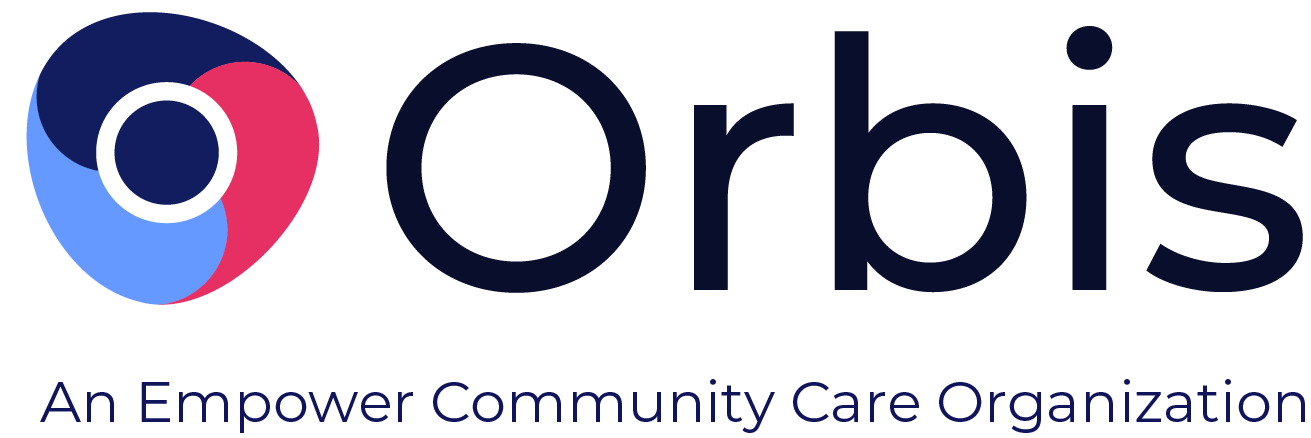Orbis Partners is a trusted leader in developing evidence-based tools that advance positive outcomes in the adult justice sector and support justice professionals in their work. In this blog, Dr. David Robinson, Director of Assessment and CEO at Orbis, who played a key role in creating the Service Planning Instrument (SPIn), provides insight into how criminal justice risk assessment tools work today and where they're going in the future.
These tools provide a comprehensive framework for conducting criminal justice risk assessments by evaluating an adult’s risks, needs, and strengths. SPIn, an evidence-based online assessment tool for adults in the justice system, empowers case managers to deliver personalized interventions that promote rehabilitation and reduce recidivism.
Whether used in correctional facilities or community supervision settings, SPIn's strengths-based approach to criminal justice risk assessment ensures that each client's unique needs are thoughtfully addressed. SPIn creates a clear path toward successful reentry and long-term positive outcomes for justice-involved adults.
Understanding SPIn and Its Role in Assessing Client Needs
SPIn's methodology is built on a holistic approach to criminal justice risk assessment. It incorporates a wide range of data points: static factors like criminal history, dynamic factors such as current living conditions, and key strengths that may reduce recidivism. This combination allows case managers to identify both the risks and protective factors that influence a client's likelihood of reoffending.
The comprehensive inclusion of adult risk, need, and strength measures in SPIn ensures that assessments capture a complete profile of each individual, which is essential for crafting truly targeted interventions.
Can you elaborate on the foundational goals of SPIn and how it came about?
SPIn was inspired by the success of YASI (Youth Assessment and Screening Instrument), a tool widely used in youth justice. Dr. Robinson explains, "Many practitioners working with justice-involved adults were asking for assessments that incorporated strengths or protective factors.
There was also interest in using streamlined pre-screen assessments before administering more comprehensive needs assessments. YASI already offered these features, which made sense in the adult assessment space. YASI also came with a positive, motivational interviewing-based model of case planning that could be immediately applied using SPIn with adults."
What makes SPIn stand out from other criminal justice risk assessment tools?
"SPIn stands out by incorporating validated measures of strengths or protective factors," Dr. Robinson says. He further highlights its user-friendly, web-based interface that includes a step-by-step collaborative case planning model. This model ensures that practitioners can assess adult risk needs and strengths while engaging clients in developing actionable plans to address those risks and leverage their strengths to help facilitate lasting change.
By offering a flexible, adaptable framework, SPIn enables justice professionals to create tailored interventions that respond to their clients' complex and often shifting needs. This approach improves engagement, reduces recidivism, and advances long-term outcomes.
Additionally, SPIn's pre-screen feature allows agencies to make early, informed decisions regarding client supervision levels and service needs. This early intervention capability enables agencies to allocate resources efficiently while focusing on clients who require the most support.
How does SPIn contribute to the long-term monitoring and support of individuals post-reentry?
"It is recommended that SPIn be used as a reassessment every 90 to 180 days," Dr. Robinson explains. "The reassessment results help gauge progress on case plans and identify any new areas of need that require attention. The reassessment process also helps case managers develop feedback to provide clients with respect to their successes and new or ongoing challenges." Regular reassessments help ensure that service plans remain relevant and responsive to changes in clients' lives.
The Impact of SPIn on Rehabilitation Outcomes
Effective rehabilitation strategies require a foundation in evidence-based practices, and SPIn is a criminal justice risk assessment tool designed to meet this need. SPIn evaluates a wide range of domains, including social influences, attitudes, and substance use, which are critical factors in assessing risk and planning interventions.
By addressing adult risks, needs, and strengths, SPIn supports justice agencies in implementing targeted strategies that improve reentry outcomes.
Can you share examples of SPIn's positive impact?
While large-scale research data is still emerging, Dr. Robinson highlights the strong feedback from practitioners: "We frequently hear from professionals who appreciate how comprehensive SPIn is. They value its ability to capture both risks and strengths, allowing them to better engage with clients and craft more effective, personalized plans."
This practitioner satisfaction underscores SPIn's real-world utility and role in guiding meaningful rehabilitation efforts. SPIn is highly adaptable, improves practitioner-client communication, and can contribute to increased client motivation.
SPIn is Adaptable
Incorporating SPIn into case management enhances the accuracy of criminal justice risk assessments and guarantees that interventions remain adaptable. This adaptability is key to addressing goals at the heart of every evidence-based rehabilitation program. SPIn's ability to track progress over time and adjust interventions as needed confirms that clients receive the right level of support at every stage of rehabilitation.
SPIn Facilitates Better Communication
Additionally, SPIn facilitates better communication between case managers and clients by offering clear, structured feedback. This improved communication builds trust between a client and practitioner and encourages greater client involvement, which research has shown to be a critical factor in successful reentry.
SPIn Contributes to Client Motivation
SPIn's strengths-based approach enhances client motivation by emphasizing their capabilities and potential for positive change. Focusing on adult risks, needs, and strengths allows practitioners to use criminal justice risk assessments to create a more balanced, hopeful perspective that can lead to better outcomes.
SPIn's Unique Role in Supporting Women in the Justice System
Justice-involved women face unique challenges that require gender-responsive solutions. Recognizing this, Orbis developed the Service Planning Instrument for Women (SPIn-W), a version of SPIn specifically designed to address the distinct needs of women in the criminal justice system.
What led to the development of SPIn-W, and how does it address the unique needs of women in the justice system?
"With SPIn-W, Orbis wanted to offer an assessment tool that assessed some of the unique needs that occur in justice-involved women," Dr. Robinson explains. "For this reason, we adapted SPIn to include more content related to family relationships (including current partners and families of origin), parenting, custody and access to children, emotional regulation, mental health, and experience of trauma." This nuanced approach ensures that assessments are trauma-informed and gender-responsive.
SPIn-W helps agencies craft service plans that address the unique resilience factors present in justice-involved women. Additionally, SPIn-W's emphasis on trauma-informed care acknowledges the significant impact of past trauma on justice-involved women. By integrating this understanding into criminal justice risk assessments and interventions, SPIn-W supports the development of more compassionate and effective rehabilitation strategies.
Added dimensions that allow practitioners to address parenting and custody concerns (which are often significant stressors faced by justice-involved women) guarantee that service plans are holistic, practical, and aligned with each woman's specific circumstances.
Future Directions and Enhancements in SPIn
Orbis Partners remains committed to staying ahead of emerging trends. Continuous evidence-based, practical improvements and innovation are central to SPIn's long-term success.
How do you ensure SPIn stays current, adaptable, and aligned to evolving justice practices?
"In the future, we will be enhancing our case planning functionality in SPIn to make it easier for practitioners to choose services and interventions that address client assessment profiles," Dr. Robinson shares. "In particular, we will be adding suggestions based on the Carey Guides and Brief Intervention Tools to help users broaden their scope of potential interventions and supervision methods that align with assessment results."
Additionally, the upcoming deployment of CaseWorks 2.0 will introduce new features, including advanced statistical and narrative reporting, client feedback tools, and enhanced case planning capabilities.
How do you envision the evolution of SPIn?
"SPIn will evolve with new developments in the field both from within Empower companies and other organizations that innovate in our field," says Dr. Robinson. "We will continue to monitor new developments published on social media and through our attendance at national conferences. We will continue to evolve the user applications of SPIn in ways that capitalize on strength measures and develop collaborative success plans with adult clients."
These planned enhancements demonstrate Orbis' commitment to providing justice professionals with criminal justice risk assessment tools that are evidence-based, practical, and adaptable to emerging research and best practices within the adult justice sector.
SPIn Enhances Criminal Justice Risk Assessment to Produce Positive Outcomes
SPIn and SPIn-W exemplify a forward-thinking approach to adult risk needs and strengths assessment, offering justice agencies robust tools for delivering personalized, evidence-based interventions. These evidence-based tools empower practitioners to craft tailored plans that promote rehabilitation and reduce recidivism by addressing adult risks, needs, and strengths.
With Orbis Partners' ongoing innovation, SPIn continues to evolve so that justice professionals can access the most effective assessment and case-planning solutions. With continuous updates and a commitment to leveraging new research, SPIn is well-positioned to remain a vital evidence-based intervention to promoting positive outcomes for justice-involved individuals.
For justice professionals seeking to enhance service delivery, SPIn offers more than just a criminal justice risk assessment tool. It provides an evidence-based framework for real, lasting change.
Orbis Partners provides solutions for criminal justice and human services systems, specializing in designing and implementing services for at-risk client groups. Orbis' adult risk, needs and strengths assessment tools are designed to guide the casework process by incorporating an individual's unique set of needs. For more information about our assessments, visit our Assessments page by clicking here.



